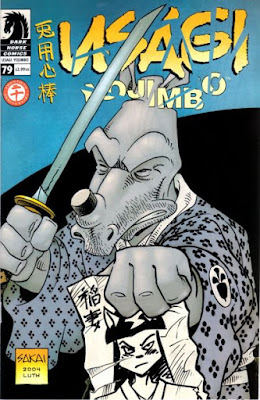So we need some memorable secondary antagonists. They have to be capable enough to be a credible threat, but you can take care of that, sure. But they also have to be distinctive -- either sympathetic or weird and funny or engagingly evil.
As always, the easiest way to develop an interesting antagonist is to swipe one. Media where the hero is kind of a scapegrace scoundrel -- or people think he is -- is a good place to start. I've been listening to Rachel and Miles Xplain the X-Men a lot lately, so comics leap to mind immediately.
For instance, the Punisher originated as a Spider-Man villain, convinced by the Jackal that Spider-Man was a baddie (and, in fairness, everyone thinking Spider-Man's a baddie is a pretty core part of the franchise). He's a fun antagonist because Spider-Man sort of agrees with him. This type of antagonist is probably more fun if your characters have been framed or done something they wouldn't normally do due to outside circumstances. If your characters are dirtbags, this character isn't a lot of fun because he runs the risk of actually becoming the protagonist (which is, of course, what eventually happened to the Punisher).
Similarly, you don't want your bounty hunter types to be too appealing, because in a lot of games PCs are already your bounty-hunting scruffbag types. But you do want them to be distinctive, and it helps if there are a lot of them. I suggest giving them:
- An old, exotic or exceptionally large example of their favoured weapon.
- A sinister mask.
- A grisly method of killing that serves as a calling card.
- A sidekick or dependent who travels with them.
- Former membership in an organisation to which one of the PCs belongs.
- A vicious animal companion. Not, under any circumstances, a wolf.
- A parent who was a notably righteous person (a paladin, the sheriff, etc.)
- A burning desire to hunt down a particular escaped malefactor other than the PCs.
You can always just make your bounty hunter sort of toughly likable, although this can be difficult to establish when the first encounter is a roadside ambush. In most games, of course, a few suitable ruffians should already be to hand. I know who mine will be in my live game, certainly (for all like four readers who play in it: Doug Grady will take whatever work is going, including that, although if there are bounties to be collected I would assume PCs would take the job).
One thing I'm currently doing in my D&D game is acknowledging that I own or have read many many more scenarios than I am ever going to run (because there are so many good free ones, bundles of holding, etc.) -- and that goes double when it comes to other fantasy games that aren't set in Glorantha. So as one does, I'm going to cannibalise them for their distinctive NPCs. I guess they left whatever it was they were doing and found work as mercenaries.
Not that I'm saying that my D&D players have attracted the attention of parties with more money than mercy or anything like that. I'm just thinking out loud here.




No comments:
Post a Comment